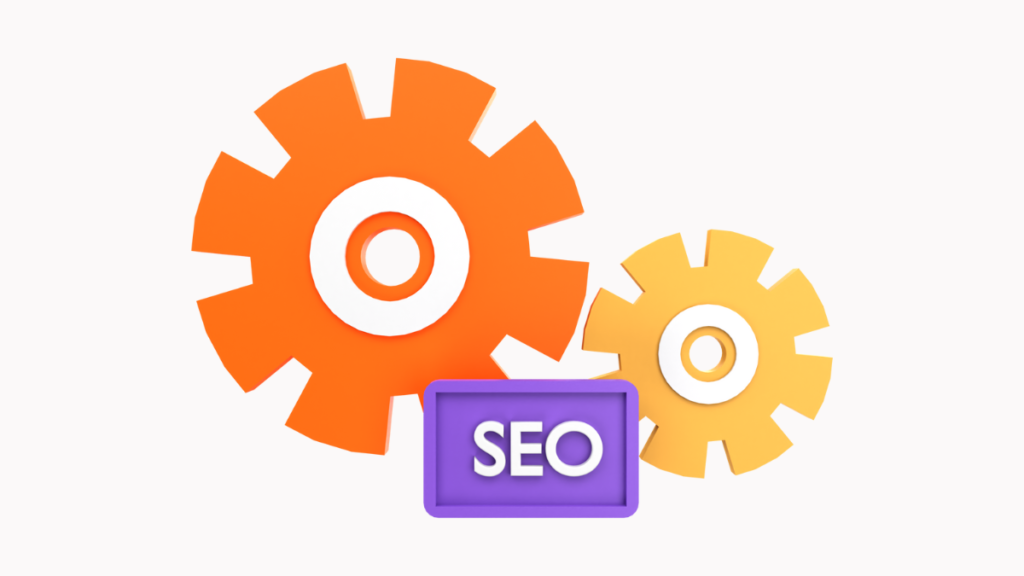Most Popular SEO Tools for Bloggers in 2023

Best SEO Tools for Bloggers in 2023
Elevate your blogging game with the top SEO tools of 2023. Discover how these essential tools can boost your blog’s visibility and rankings.
Are you a blogger looking to skyrocket your website’s visibility on search engines? Do you want to harness the power of SEO but find it daunting? Fear not! In this article, we will take you on a journey through the most popular SEO tools in 2023. These tools are your trusted companions on the path to conquering the digital landscape. So, let’s dive in and explore the world of SEO tools that can transform your blogging game.
Table of Contents

FAQs
What are SEO tools?
Let’s start with the basics. SEO tools are like a blogger’s secret weapon. They are software applications designed to help you optimise your website for search engines like Google, Bing, and Yahoo. These tools analyse various aspects of your website and provide valuable insights and recommendations to improve your search engine rankings. They make the complex world of SEO more manageable and accessible to bloggers.
Why do bloggers need SEO tools?
You might wonder why SEO tools are essential for bloggers. Well, imagine you are in a race, but you have no idea where the finish line is or how fast you need to run. That’s what blogging without SEO tools feels like. Here’s why bloggers need them:
- Precision in Keyword Targeting
SEO tools help you discover the right keywords to target. They unveil the search terms your potential readers are using, allowing you to create content that resonates with them. - Competitive Edge
In the crowded blogosphere, standing out is crucial. SEO tools let you peek at what your competitors are doing and help you outperform them. - Content Optimisation
Writing great content is only half the battle. SEO tools guide you in optimising your content for search engines, ensuring it gets the visibility it deserves. - Data-Driven Decisions
Blogging is not just about writing; it’s about making informed decisions. SEO tools provide you with data and insights to steer your blogging strategy in the right direction.
Now, let’s dig deeper into the types of SEO tools every blogger should have in their arsenal.

Keyword Research Tools
Keywords are the building blocks of SEO. These tools help you find the keywords that resonate with your audience. Popular options include:
- Google Keyword Planner
Free and reliable, this tool offers keyword suggestions and search volume data directly from Google. - Ahrefs Keywords Explorer
Known for its accuracy, Ahrefs provides comprehensive keyword data, including search volume and keyword difficulty. - SEMrush
A versatile tool offering keyword research, competitive analysis, and more, SEMrush is a favorite among bloggers.
On-Page SEO Tools
Once you have your keywords, it’s time to optimise your content. On-page SEO tools come to your rescue:
- Yoast SEO
If you’re on WordPress, Yoast SEO is your best friend. It offers real-time content analysis and suggestions for improvement. - Moz Pro
Moz Pro’s on-page optimisation features help you fine-tune your content for SEO success. - SurferSEO
SurferSEO analyzes top-ranking pages for your target keywords and provides optimisation recommendations.
Backlink Analysis Tools
Backlinks are gold in SEO. These tools help you monitor and build your backlink profile:
- Ahrefs Site Explorer
A comprehensive backlink analysis tool that also helps you spy on your competitors’ backlinks - Majestic SEO
Majestic SEO specialises in backlink analysis, offering detailed insights into your website’s link profile. - OpenLinkProfiler
A free tool that lets you analyse your backlinks and those of your competitors
Competitor Analysis Tools
Knowing your competition is vital. These tools give you a sneak peek into your competitors’ strategies:
- SEMrush
SEMrush’s competitor analysis feature lets you uncover your rivals’ keywords, traffic sources, and more. - SpyFu
SpyFu allows you to spy on your competitors’ paid and organic search strategies, revealing their most profitable keywords. - SimilarWeb
SimilarWeb provides data on your competitors’ website traffic, referral sources, and audience demographics.
Content Optimisation Tools
Creating content that ranks is an art. These tools help you master it:
- Clearscope
Clearscope analyses top-ranking content for your target keywords and suggests related topics to cover. - MarketMuse
MarketMuse uses AI to provide content recommendations and optimisation strategies. - WordAI
WordAI uses advanced algorithms to generate human-like content, saving you time on content creation.
Technical SEO Tools
The technical side of SEO can be intimidating, but these tools simplify it:
- Google Search Console
A must-have for every blogger, it helps you monitor your website’s performance in Google search results. - Screaming Frog SEO Spider
This tool crawls your website, uncovering technical issues that may be affecting your SEO. - SEOptimer
SEOptimer provides an in-depth analysis of your website’s SEO, including speed and mobile friendliness.
Local SEO Tools
If your blog caters to a local audience, these tools are your allies:
- Google My Business
Claim and optimize your Google My Business listing to appear in local search results. - BrightLocal
BrightLocal offers a suite of tools for managing and improving your local SEO efforts. - Moz Local
Moz Local helps you manage your online presence across various platforms and directories.
Analytics and Reporting Tools
Understanding your website’s performance is crucial. These tools provide insightful data:
- Google Analytics
A free tool that offers a wealth of data on your website’s visitors, traffic sources, and more. - SEMrush
SEMrush’s reporting tools help you track your SEO progress and create visually appealing reports for clients or stakeholders. - Crazy Egg
Crazy Egg’s heatmaps and visual reports show how visitors interact with your website, helping you make improvements.
Social Media Integration Tools
Don’t neglect social media in your SEO strategy. These tools help you manage and optimise your social presence:
- Buffer
Buffer lets you schedule and analyse your social media posts, ensuring your content reaches the right audience. - Hootsuite
Hootsuite is a comprehensive social media management tool that helps you engage with your audience effectively. - Sprout Social
Sprout Social offers social media analytics and engagement tools to boost your online presence.
Mobile optimisation Tools
In the mobile-first era, mobile optimisation is paramount. These tools ensure your site is mobile-friendly:
- Google Mobile-Friendly Test
This Google tool checks if your website is mobile-friendly and provides suggestions for improvement. - AMP (Accelerated Mobile Pages)
Implement AMP to make your pages load faster on mobile devices, improving the user experience. - MobileMonkey
MobileMonkey is a chatbot and messaging platform that enhances mobile user engagement.
User Experience Enhancement Tools
User experience matters for SEO. These tools help you create a seamless experience for your visitors:
- Hotjar
Hotjar offers visitor behaviour analytics, helping you understand how users navigate your site. - Optimal Workshop
Use Optimal Workshop to conduct usability testing and improve the user-friendliness of your website. - UsabilityHub
UsabilityHub lets you run tests to gather feedback on website designs and user interfaces.
Link Building Tools
Building high-quality backlinks is essential. These tools streamline the process:
- Pitchbox
Pitchbox automates outreach and link-building campaigns, saving you time and effort. - Hunter.io
Hunter.io helps you find email addresses for outreach, a crucial part of link building. - BuzzStream
BuzzStream facilitates influencer outreach and link building, making it easier to connect with industry leaders.
Last Words
Congratulations! You’ve embarked on a journey through the most popular SEO tools for bloggers in 2023. Armed with these tools, you have the power to boost your website’s visibility, outperform your competitors, and connect with your audience like never before. Remember, SEO is an ongoing process, so keep experimenting, learning, and adapting to stay at the top of your blogging game.
FAQs
Q1: What is the best free SEO tool for bloggers?
A1: Among free options, Google Keyword Planner is a top choice for keyword research, while Google Analytics provides valuable insights into website performance.
Q2: Are paid SEO tools worth the investment for bloggers?
A2: Yes, paid SEO tools like SEMrush and Ahrefs offer advanced features that can significantly benefit bloggers by providing in-depth data and analysis.
Q3: How often should I check my website’s SEO performance?
A3: It’s advisable to check your SEO performance regularly, at least once a month, to track progress and make necessary adjustments.
Q4: Can SEO tools help with local SEO?
A4: Absolutely! Tools like Google My Business and BrightLocal are specifically designed to enhance local SEO efforts.
Q5: What’s the first step in using SEO tools effectively?
A5: Start by conducting thorough keyword research to understand what your target audience is searching for, and then optimise your content accordingly.
Now, armed with knowledge about these SEO tools, go forth and conquer the digital realm! Remember, mastering SEO is a journey, and these tools are your companions along the way. Happy blogging!


